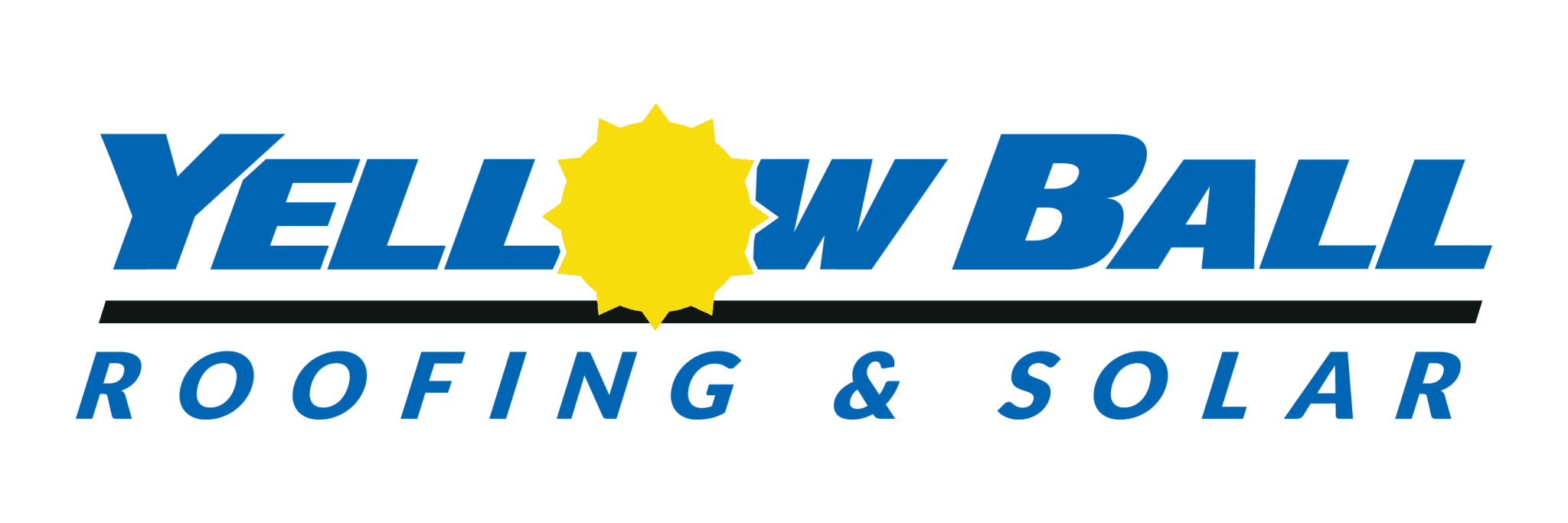Residential Solar Installation: Slash Energy Bills & Power Your Home with the Sun
Zero Money Out of Pocket Your First Year of Solar is Free
Unlock the Power of Solar for Your Home: A Complete Guide to Residential Solar Installation
Are you ready to embrace a greener, more cost-effective future? Solar installation is transforming the way homeowners power their lives. With rising electricity bills and growing environmental concerns, switching to solar energy is a smart and sustainable choice.
This comprehensive guide will equip you with essential knowledge about residential solar installation. From understanding the benefits and costs to navigating the installation process and maintenance, we’ll cover it all. Discover how solar panels work and why they’re a sound investment for your home.
Why Choose Solar Installation?
- Reduce Energy Costs: Generate clean electricity and lower your monthly utility bills.
- Environmental Impact: Contribute to a sustainable future by reducing your carbon footprint.
- Increase Home Value: Solar panels can boost your property’s value.
- Energy Independence: Take control of your energy consumption and protect yourself from rising electricity rates.
Yellowball Roofing & Solar is your trusted partner for residential solar installation. Our experienced team will guide you through the entire process, from design to installation. Enjoy the benefits of solar power while contributing to a cleaner planet.
Contact Yellowball Roofing and Solar today for a free consultation and discover how solar can transform your home.
What Are the Benefits of Residential Solar Installation?
Switching to solar energy offers numerous advantages to homeowners and benefits of residential solar installation.
Are you tired of sky-high electricity bills? Are you looking for ways to reduce your environmental impact? Investing in residential solar installation could be the perfect solution.
- Save Money on Your Electricity Bills One of the most compelling reasons to go solar is the potential for significant savings on your monthly energy costs. Solar panels convert sunlight into electricity, reducing your reliance on the grid and lowering your electric bills. Over time, these savings can add up to thousands of dollars.
- Embrace Sustainability Solar energy is a clean, renewable resource that produces no harmful greenhouse gas emissions. By choosing solar, you’re helping to protect the environment for future generations. Enjoy the satisfaction of knowing you’re contributing to a sustainable future while reducing your carbon footprint.
- Increase Your Home’s Value Homes with solar panels are highly desirable in today’s real estate market. Studies have shown that properties with solar installations tend to sell faster and at a premium compared to similar homes without solar. This makes solar a smart investment that can increase your home’s value.
- Achieve Energy Independence Solar panels provide a degree of energy independence. By generating your own electricity, you become less reliant on the grid and protected from fluctuating energy prices. Additionally, solar systems can continue to operate during power outages, providing backup power for your home.
Take the first step towards energy independence and savings. Schedule your free solar consultation with Yellowball Roofing and Solar today!
How Do Solar Panels Work for Homes?
- Sunlight Absorption: Solar panels are composed of PV cells that absorb sunlight.
- Electron Release: The process of converting sunlight into electricity begins with the release of electrons.
- Direct Current (DC) Electricity:Unlike the alternating current (AC) used in homes, solar panels produce direct current (DC).
- Inverter Conversion: Sunlight triggers the release of electrons in photovoltaic cells, initiating the generation of direct current (DC) electricity.
- Powering Your Home: Enjoy the convenience of powering your entire home with AC electricity.
- Excess Energy: Don’t let unused solar energy go to waste. Store it for later consumption or feed it back into the grid to potentially earn financial rewards.
What Are the Different Types of Solar Panels Available for Homes?
Choosing the right solar panels for your home is a crucial decision. Understanding the different types of solar panel for homes will help you make an informed choice.
The Three Main Types of Solar Panels
- Monocrystalline Solar Panels: Constructed from a single crystal silicon structure, monocrystalline panels boast high efficiency and a sleek appearance. They are ideal for homes with limited roof space due to their ability to generate more power per square foot.
- Polycrystalline Solar Panels: Composed of multiple silicon crystals, polycrystalline panels offer a balance of efficiency and affordability. While less efficient than monocrystalline panels, they are a suitable option for larger roofs with ample space.
- Thin-Film Solar Panels: Made from a thin layer of photovoltaic material, thin-film panels are flexible, lightweight, and can be installed on various surfaces. However, they generally have lower efficiency compared to crystalline panels.
When selecting solar panels, consider the following factors:
- Roof Space: Available roof area will influence the panel type suitable for your home.
- Budget: Determine your budget to compare the cost-effectiveness of different panel options.
- Efficiency: Higher efficiency panels may generate more electricity, but they often come with a higher price tag.
- Aesthetics: Consider the appearance of the panels and how they will blend with your home’s exterior.
Need help choosing the right solar panels for your home? Yellowball Roofing and Solar offers expert guidance and high-quality residential solar installation.
How Much Does Residential Solar Installation Cost?
- System Size: The number of solar panels needed to meet your home’s energy consumption determines the system size and overall cost.
- Panel Efficiency: Higher efficiency panels typically cost more but can generate more electricity, potentially offsetting the initial investment.
- Installation Complexity: Roof type, shading, and electrical system complexity can impact installation labor costs.
- Permits and Inspections: Local regulations and fees for permits and inspections contribute to the overall project expense.
- Incentives and Rebates: Government and utility company incentives can significantly reduce the upfront cost of solar installation.
What Is the Installation Process for Residential Solar Panels?
Are you considering going solar? Understanding the residential solar panel installation process is crucial. This guide will walk you through the key steps involved in transforming your home into a sustainable energy producer. The residential solar installation process is a series of steps undertaken to effectively install solar panels on a home. This involves careful planning, permitting, and expert installation to ensure optimal energy generation.
Steps in the Residential Solar Panel Installation Process
- Site Assessment: A thorough evaluation of your roof’s structure, orientation, and shading conditions to determine the ideal placement for solar panels.
- System Design: Creation of a customized solar panel system tailored to your specific energy needs and roof specifications.
- Permitting and Approvals: Obtaining necessary permits and approvals from local authorities and utility companies.
- Installation: Mounting solar panels on your roof and connecting the system to your home’s electrical grid.
- Inspection and Activation: Final inspection to verify system safety and performance, followed by activation for solar power generation.
Ready to harness the power of the sun?
☀️ Schedule your free consultation today and discover how easy it is to switch to solar and start saving! Let’s harness the power of the sun together!
Are There Incentives and Rebates for Residential Solar Installation?
Incentives and rebates for residential solar installation are financial benefits governments, utilities, and other organizations offer to encourage homeowners to adopt solar energy. One of the most attractive benefits residential solar installation is the availability of substantial incentives and rebates. Take advantage of financial incentives to significantly offset the initial investment in solar power, making it a more budget-friendly and appealing option.
Types of Incentives and Rebates
- Federal Tax Credits: The Investment Tax Credit (ITC) is a significant federal tax credit that allows homeowners to deduct a portion of the cost of their solar system from their federal taxes.
- State and Local Incentives: Many states and local governments offer additional incentives such as cash rebates, tax exemptions, or property tax reductions for solar installations.
- Utility Rebates: Some utility companies provide rebates or net metering programs to solar customers. Net metering allows homeowners to offset their electricity bills by sending excess solar power back to the grid.
Ready to start saving on your energy costs? Contact Yellowball Roofing and Solar today for a free solar evaluation and learn how much you can save.
How Do I Choose the Right Solar Installer for My Home?
Choosing a residential solar installer involves careful consideration of several factors. By focusing on experience, certifications, warranties, and pricing, you can make an informed decision.
Tips for Choosing a Residential Solar Installer
- Experience and Reputation: Look for installers with a proven track record of successful installations and positive customer reviews.
- Certifications and Licenses: Ensure the installer holds the necessary certifications and licenses, such as NABCEP certification.
- Warranties and Maintenance: Inquire about warranties on panels, equipment, and workmanship. Consider the installer’s maintenance and support services.
- Pricing and Financing Options: Explore Yellowball financing options. Transparent pricing and flexible payment plans are essential.
What Maintenance Is Required for Residential Solar Panels?
Maintenance for residential solar panels is essential to ensure that you continue to generate maximum power and enjoy a long lifespan. While solar panels are designed to be low-maintenance, there are a few key steps you can take to optimize their performance.
Solar panel maintenance involves routine checks and cleaning to optimize the performance and longevity of your solar system. By addressing potential issues early, you can prevent costly repairs and ensure uninterrupted energy production.
Essential Solar Panel Maintenance Tips
- Regular Cleaning: Remove dirt, dust, and debris from your panels using a garden hose or soft brush. Regular cleaning, especially in dusty or polluted areas, is crucial for optimal performance.
- Visual Inspections: Periodically inspect your panels for any signs of damage, such as cracks, discoloration, or loose connections. Early detection of issues can prevent further problems.
- Professional Maintenance: Schedule annual inspections and maintenance by a qualified solar technician to identify and address any potential problems.
- Monitor System Performance: Utilize your solar panel’s monitoring system to track energy production and identify any unusual patterns or declines in performance.
Protect your investment and optimize your solar system’s performance. Visit Yellowball Roofing and Solar in Billings, Montana for professional solar panel maintenance.
Go Solar & Save: Embrace a Brighter, Greener Future with
Residential Solar Installation Today
Imagine slashing your energy bills, cutting your carbon footprint, and boosting your home’s value all at once—ready to unlock the secret to a sustainable lifestyle?
Residential solar installation is the answer. Investing in residential solar installation is a forward-thinking decision that offers numerous benefits for homeowners. By embracing solar power, you can reduce your reliance on traditional energy sources, lower your electricity bills, and contribute to a cleaner environment.
Advantages of Residential Solar Installation
- Financial Savings: Reduce your monthly electricity bills and enjoy long-term cost savings.
- Increased Home Value: Solar panels can significantly boost your home’s resale value.
- Energy Independence: Reduce your dependence on the grid and protect yourself from rising energy costs.
- Environmental Impact: Generate clean, renewable energy and reduce your carbon footprint.
Yellowball Roofing & Solar is your trusted partner for residential solar installation. Our experienced team will assess your home’s energy needs and design a customized solar system to maximize your savings.
Ready to make the switch to solar power?
Contact Yellowball Roofing & Solar today for a free consultation and learn more about our comprehensive residential solar installation services.




